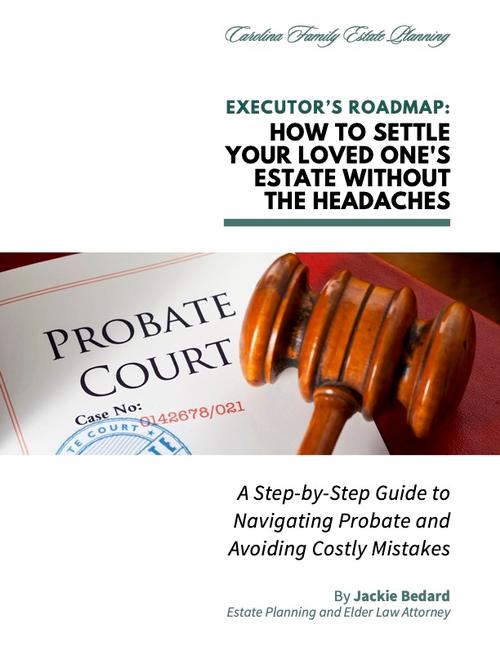Individuals engaged in estate planning often get panicky when they hear the word “probate.” When the term hasn’t been fully explained by a probate lawyer (and sometimes even when it has), it conjures visions of long waits, loss of inheritance, and many other hassles for heirs of an estate.
To calm these fears (and to avoid working with an attorney), many people consider the idea of adding one or more of their children to their bank accounts. Generally speaking, each “joint tenant” of an account has complete access to the money, but when one dies, the entire amount becomes the property of the other joint tenant(s).
This may seem like a logical way to directly transfer money to heirs without going through the probate process, but a skilled probate attorney in Cary needs to keep clients informed of the potential pitfalls of this approach:
- As it has already been mentioned, all joint tenants have access to the funds in the account. This means that either party can withdraw money at any time. If the child added to the account is not entirely trustworthy, this can be a devastating reality when the money is used inappropriately.
- Any money received by the child may be considered a gift, which means that it is subject to a variety of gift tax laws. A Cary estate gift tax attorney will be able to keep you up-to-date on current laws and regulations in our area.
- Both parties' creditors can access this account. That means that if one joint tenant dies (even the one who is not in debt), the other’s creditors can go after the money they jointly held. Keep in mind that this means that if the child has had credit problems, those creditors may have access to the parent’s money. This could include creditors, lawsuits, and divorce.
- Money left in the event of the parent’s death will only be accessible to the other joint tenant(s). If one child has been responsible for the majority of a parent’s elder care and, therefore, is on the account, he or she will likely have no legal responsibility to share those funds with other siblings. Again, trustworthiness is an important issue. And even if the child wishes to share the funds with his or her siblings, there may be gift tax consequences to doing so.
If you are considering adding a loved one to a bank account as a means to avoid probate, it’s important to at least talk to a Cary probate attorney about your options. You may find that simply giving your loved one power of attorney over the account or holding your assets in trust may be preferable based on your circumstances.


